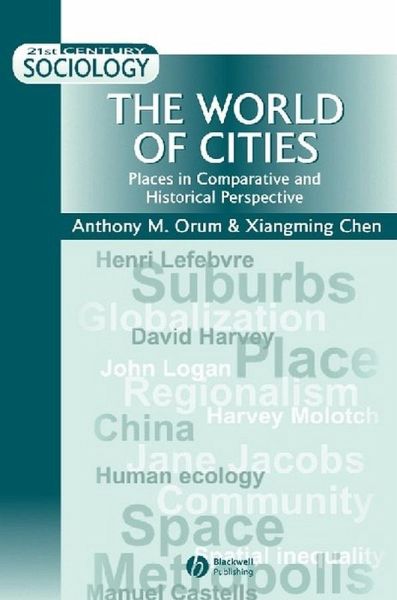
The World of Cities
Places in Comparative and Historical Perspective
Versandkostenfrei!
Versandfertig in über 4 Wochen
51,99 €
inkl. MwSt.

PAYBACK Punkte
26 °P sammeln!
The World of Cities is a concise theoretical and empirical introduction to urban sociology. In clear and engaging terms, the book surveys and critiques all the major theoretical perspectives in urban studies. It examines the meanings of place and space, and applies these concepts to contemporary cities, communities, and neighborhoods. It then reviews the history of city-building in the United States from the late 18th century to the present time. Next it examines the impact of global economic and cultural forces on contemporary local places and city life in a comparative context, with illustra...
The World of Cities is a concise theoretical and empirical introduction to urban sociology. In clear and engaging terms, the book surveys and critiques all the major theoretical perspectives in urban studies. It examines the meanings of place and space, and applies these concepts to contemporary cities, communities, and neighborhoods. It then reviews the history of city-building in the United States from the late 18th century to the present time. Next it examines the impact of global economic and cultural forces on contemporary local places and city life in a comparative context, with illustrative examples and evidence from the United States and China. The final section discusses the current efforts of metropolitan leaders to improve cities and maintain the civic culture of a community. For the student of urban sociology and urban studies in general, this textbook is an ideal overview and synthesis of a fascinating and ever-changing field.


